In 2021, 45.9 percent or 350 of the tickets issued to street vendors by the Department of Consumer and Worker Protection (DCWP) were for unlicensed vending, and this year, 12.8 percent (22 tickets) have already been issued for the same reason.
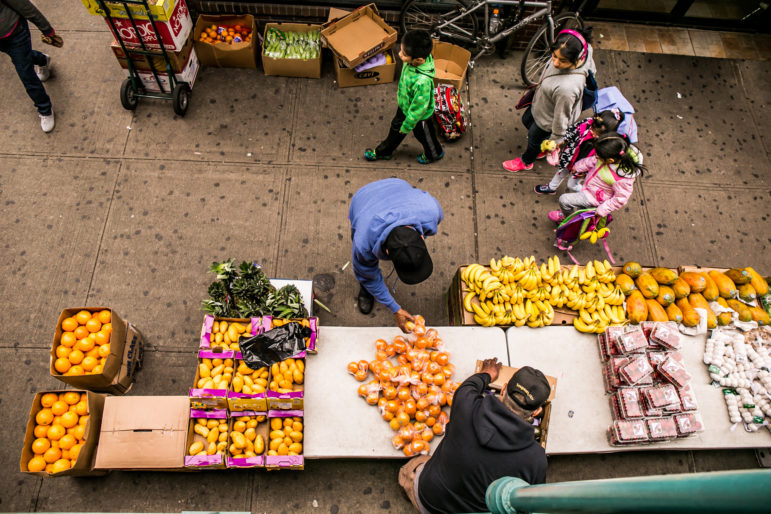
Adi Talwar
A street vendor at the 207 street subway entrance.Lea la versión en español aquí
New York street vendors held a press conference Monday followed by a 24-hour sleep-out in front of Gov. Kathy Hochul’s office in Midtown Manhattan, calling on the governor to support and legalize street vending through a bill under consideration in Albany as the state budget deadline draws near.
The bill, S1175 / A5081, would reshape the street vending sector in New York by requiring the city to create and adopt a program for regulating vendors that would do away the current cap on the number of licenses, which critics say has for years led to the penalization of vendors who are unable to get their hands on one to operate legally. While another piece of legislation passed by the City Council in 2021 expanded the number of vendor licenses the city can offer by a few hundred a year, the state proposal would go further by prohibiting the city from restricting that amount at all, to “make sure every street vendor is licensed,” according to the text of the bill.
“It took the City Council seven years to pass Intro 1116,” said Street Vendor Project Director, Mohamed Attia, referring to last year’s City Council bill, an older version of which was first introduced under former Council Speaker Melissa Mark-Viverito’s leadership. Organizers first launched their “Lift the Caps” campaign back in 2014, he added, saying the Council law also failed to address the general vendors’ cap and didn’t open a pathway for anyone to become a legal street vendor.
In addition to formalizing other standards for the industry—including taxes, rules and regulations, and the training needed to obtain a license—the legislation would vacate past convictions for street vending offenses. This last point would be life-changing for the thousands of immigrants who are part of the nearly 20,000 vending entrepreneurs working in New York City, since an NYPD criminal summons can have negative consequences for vendors with immigration cases.
Immigration judges could consider past arrests/convictions for things like unlicensed or unpermitted vending as part of their discretion in awarding immigration status, advocates explained. In 2021, NYPD issued 41 criminal court summonses for vending-related offenses, city data shows.
The legislation, sponsored by State Senator Jessica Ramos and Assemblymember Jessica Gonzalez-Rojas, would also require regulatory oversight be provided by a civilian agency. In the city, the Department of Consumer and Worker Protection (DCWP) took over the street vendor inspection and enforcement functions previously performed by the NYPD more than a year ago, though police are still involved in some cases and still issuing tickets, City Limits’ reporting found.
Black market for general licenses
Reforms for New York street vendors are long overdue, advocates and vendors say, particularly in New York City, where the diverse industry has long operated in the shadows because of strict limits on the number of vendors who are legally allowed to operate.
“Four decades ago, an arbitrary cap on business licensing transformed New York’s smallest businesses into criminals. Now, as New York State moves into a period of economic recovery, we must bring our smallest businesses—street vendors—into the formalized economy, and finally the ability to access business licensing,” said Attia.
In 1979 the city implemented a cap on the number of general merchandise licenses and mobile food vendor permits in the city. Advocates say this created a punitive system in which vendors were forced to either rent an underground-market permit from existing permit-holders or vend without a permit because there were not nearly enough to meet the demand.
Four decades later, there are currently only 853 licenses available for non-veteran general vendors, and a waitlist of 12,000 New Yorkers long. General vendors can sell or lease goods or services other than food or those items sold by first amendment vendors who sell newspapers, magazines, CDs, books, and art. The only exception to the limit imposed decades ago is for certain veterans residing in New York State, or their surviving spouses/domestic partners.
The demand for general vendor licenses is so out of proportion, advocates explained, that the waitlist itself has been closed for new applications for nearly a decade. When it briefly reopened in 1993, over 5,000 New Yorkers were added to it. In 2016, the waiting list reopened for less than a month and nearly 10,000 New Yorkers applied.
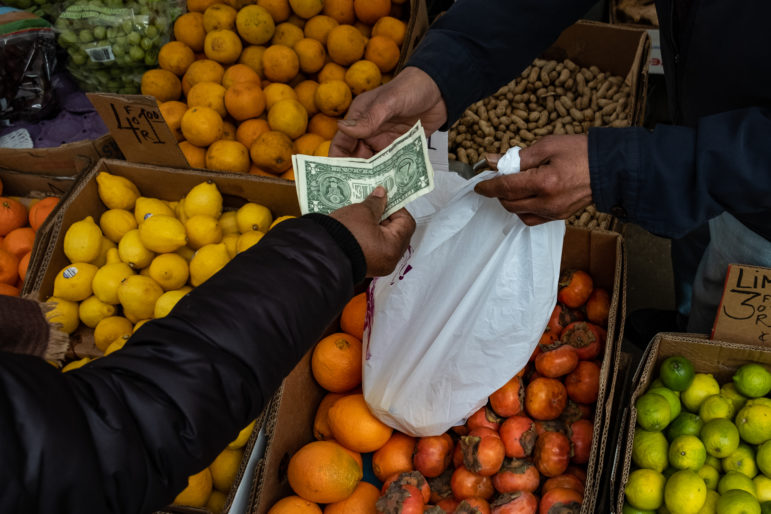
Adi Talwar
Coveted mobile food vendor permits
The case for mobile food vendors follows a similar pattern. Under city rules, they’re required to have both a license and a permit from the NYC Department of Health and Mental Hygiene (DOHMH). This means that mobile food vendors must pass a DOHMH Health Academy food protection course, hold a New York State Certificate of Authority to collect sales tax, while abiding by citing rules and food safety regulations at all times. Many have mobile food vendor licenses since there is no limit on those, but since it’s a two-part regulatory license, thousands of street food vendors lack the long-awaited permit.
There are 2,800 full-term citywide permits, 100 full-term citywide permits exclusively for disabled veterans, disabled persons and non-disabled veterans, and 200 full-term borough-specific permits (up to 50 permits available for each borough other than Manhattan), valid for a two-year period each. There are also 1,000 seasonal citywide permits (valid from April to October each year) and 1,000 green cart permits (for fruit and vegetables). According to the Street Vendors Project, 5,884 individuals are on the waitlist to acquire a mobile food vendor permit as of 2016, and the waitlist has been closed since 2007.
“We cannot have a recovery in New York City and State that excludes street vendors from that recovery,” said Assemblymember Jessica González-Rojas, the state bill’s prime sponsor in the Assembly. As of March 8, 26 additional assembly members have signed on as sponsors. “We are currently pushing for it to be done in the NYS budget and have garnered a lot of support from Assemblymembers who want to see the industry formalized, regulated, and decriminalized.”
In 2021, for example, 45.9 percent (350 tickets) of the 762 violations were issued for unlicensed street vending, per DCWP data. This year, 12.8 percent (22 tickets) have already been issued for the same reason.
City Limits previously reported that fines against street vendors in New York City by both DCWP and NYPD in 2021 slightly exceeded the number of total tickets issued by the NYPD prior to the COVID-19 crisis: 1,621 tickets in 2021 compared to 1,609 civil and criminal summons issued in 2019.
“They [street vendors] are entrepreneurs and they do not deserve to be criminalized and the increase in ticketing that has occurred. While New York City passed legislation to reduce the cap on permits there is clearly more that needs to be done,” González-Rojas added.
A push for action in the state budget
But her bill will likely face opposition, just as the City Council legislation approved last year—which made far more modest reforms than what the state bill is proposing—drew the ire of some, including city business and real estate groups. “With the exception of street vendors, who in this city is calling for more street vending, more business conducted on the street, more cooking fumes, more illegally parked cooking trucks and inventory trucks, more crowding of the sidewalks, sanitation concerns?” Michele Birnbaum, co-chair of the vendor committee for Manhattan’s Community Board 8, testified in opposition to the City Council bill in 2019, according to a transcript of that hearing.
“Doubling the number of food carts, many of which actively grill and emit smoke that travel for blocks…will even further limit the prospects of brick and mortar restaurants to thrive,” Matthew Bauer, president of the Madison Avenue Business Improvement, testified at the same hearing.
If the state bill is passed, all street vendors (general vendors, mobile food vendors, and first amendment vendors) must obtain a Certificate of Authority from the state to collect sales tax. New York City could see returns from that revenue as well as from annual $100 license fees; $1,000 supervisory licenses fee that needs to be renewed every two years; and $200 yearly license fees for general vendors.
The state proposal would adopt the same approach as last year’s City Council bill, which is set to establish the use of “supervisory licenses.” It aims to gradually close the underground market for permits by creating a new system that will connect the license to an individual, rather than the food cart or truck, so the supervisory license holder must be present at all times the cart/truck is in operation.
With the passage of Intro 1116 in 2021, all current mobile food vendor permits will change over to a new supervisory license system by July 2032, so they’ll need both the mobile food vendor license and the supervisory license. From July on, 400 new supervisory licenses will be available to vendors on the existing waitlist who have held a mobile food vendor license since 2017.
In the meantime, city vendors who currently own and operate food trucks or carts with existing or rented permits will continue with the current system until “the permit is not renewed; the permit is revoked, or it is July 2032,” explained Street Vendor Project’s Deputy Director, Carina Kaufman-Gutierrez.
“Every time a current mobile food permit is not renewed or if it’s revoked, it will be transferred to the new supervisory license system and distributed to someone on the waitlist,” she added.
The city law will also keep current location restrictions on where vendors can operate intact. “Location restrictions will actually be further enforced because once vendors have licensing and business ownership, they are incentivized to follow citing rules and regulations in order to retain permit ownership, otherwise risk fines and potential permit revocation for repeat violations.”
Indeed, New York City has detailed rules and regulations in place to designate the time, place, and manner in which vendors can run their business.
A fiscal impact analysis of the state bill by the NYC Street Vendor Justice Coalition shows that if only 60 percent of all general merchandise vendors (approximately 7,200) on the current waitlist apply for a general vendor license and register themselves with the state for the purposes of collecting sales tax, it could have an annual revenue impact in the range of $15 to $20 million (with the lower estimate corresponding to a post-pandemic economy, and the higher estimate to pre-pandemic business activity).
If all general merchandise vendors currently on the waitlist apply for a general vendor license, it could mean $25 to $33 million.
Advocates and legislators are pushing for a one-time allocation of $19 million in this year’s state budget to ensure appropriate oversight and outreach in the first year of the bill’s implementation. Those funds would primarily cover administrative costs related to compliance with existing city vending laws, as well as outreach and education efforts.
A spokesperson for State Sen. Jessica Ramos, lead sponsor of the vendors’ bill in the Senate, said that she is working to include the legislative language and funding to help to implement the licensing process.
“Once the program is fully implemented the annual revenue to both city and state is anticipated to far outweigh the initial cost of implementation,” said Kaufman-Gutierrez.


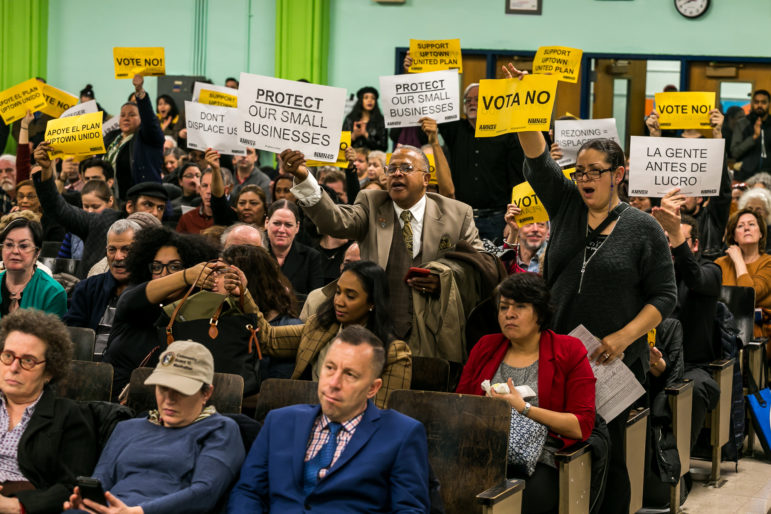
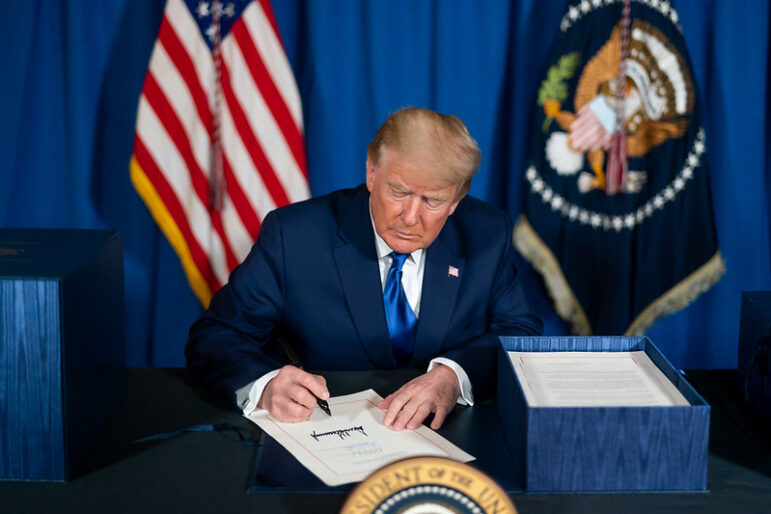
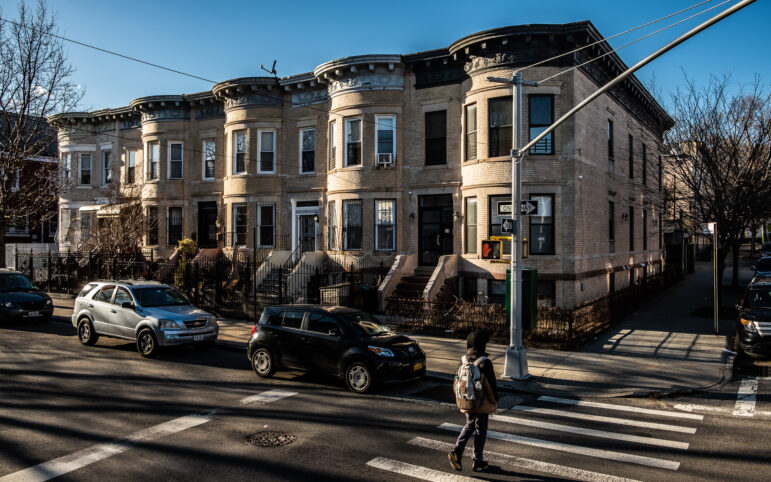
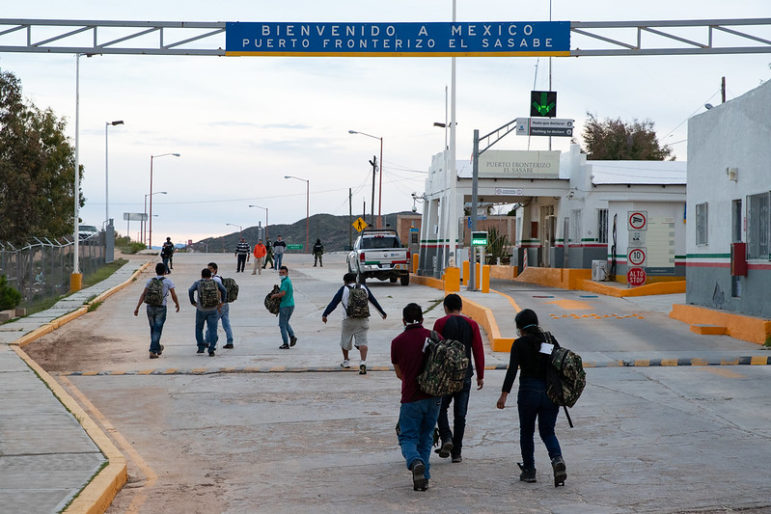



3 thoughts on “State Bill Would Vacate Past Convictions for Street Vending Offenses”
Like virtually every other media report on this proposed law, this article distorts the reality of NYC street vending. For example: “In addition to formalizing other standards for the industry—including taxes, rules and regulations, and the training needed to obtain a license…” This is nonsense. The rules and standards for street vending are fully established and have been since the 1970’s. Food vendors have the most restrictions and requirements because food safety is a genuine issue. All of the tens of thousands of legal vendors in NYC pay sales taxes and are required to follow a 60 page long list of rules. Street artists and other First Amendment protected vendors are exempt from any license or permit; in other words, all of these immigrant vendors who are allegedly demanding a license, could right now legally vend any item that is First Amendment protected without needing a license. The reason many vendors work without a license is that licensed vendors have to follow a lot of rules. Illegal vendors, like virtually all the vendors in the Street Vendor Project (SVP), are free to violate every rule, and they do so with relative impunity setting up on restricted streets, in subways, blocking crosswalks and selling food without any health or safety precautions. If this law is passed, the very first vendors who will suffer are exactly those food vendors represented by the Street Vendor Project. They are already getting more summonses than ever, thanks to SVP’s Intro #1116. When they wake up to what the pols in Albany mean by stating their intention to, “…formalizing other standards for the industry—including taxes, rules and regulations, and the training needed to obtain a license…” they will be horrified. For example, Selling churros from a shopping cart in the subway? You need a $50,000 cart with hot and cold running water to vend food and no one can vend in the subway. This law will actually eliminate most of the City’s current vendors who will be replaced by employees of vending corporations and the BIDs. SVP has done more to damage vending than any elected official.
Still censoring the truth from you readers?
Like virtually every other media report on the proposed law, this article distorts the reality of NYC street vending.
For example QUOTE: “In addition to formalizing other standards for the industry—including taxes, rules and regulations,
and the training needed to obtain a license…” This is nonsense. The rules and standards for street vending are
fully established and have been since the 1970’s. Food vendors have the most restrictions and requirements
because food safety is a genuine issue. All of the tens of thousands of legal vendors in NYC pay sales taxes
and are required to follow a 60 page long list of rules. Street artists and other First Amendment protected vendors
are exempt from any license or permit; in other words, all of these immigrant vendors who are allegedly demanding
a license, could right now legally vend any item that is First Amendment protected without needing a license.
The reason many vendors work without a license is that licensed vendors have to follow a lot of rules. Illegal vendors,
like virtually all the vendors in the Street Vendor Project (SVP), are free to violate every rule, and they do so with
relative impunity setting up on restricted streets, in subways, blocking crosswalks and selling food without any
health or safety precautions. Occasionally, they get a summons, which are very rarely paid.
If this law is passed, the very first vendors who will suffer are exactly those food vendors represented
by the Street Vendor Project. They are already getting more summonses than ever,
thanks to SVP’s Intro #1116. When they wake up to what the pols in Albany mean by stating their intention
to, “…formalizing other standards for the industry—including taxes, rules and regulations, and the training
needed to obtain a license…” they will be horrified. For example, Selling churros from a shopping cart
in the subway? You need a $50,000 cart with hot and cold running water to vend food and no one can
vend in the subway. You also need a commissary, which can cost hundreds of thousands of dollars.
This law will actually eliminate most of the City’s current vendors who will be replaced by employees of
vending corporations and the BIDs. SVP has done more to damage vending than any elected official.
How does this law relate to street artists?
Their intention is to subject every vendor to a license, to total control by the BIDs, to vending enforcement by
the BIDs, the NYPD and The Department of Consumer and Safety Protection. Since it was founded,
SVP has been trying to eliminate the exemption from a license artists won in 1996. -RL
I asked the architects of Local Law 18 why they were creating 4000 new permits when the city had 1000 permits currently under the caps sitting in a draw at the health department? First they stated what I already knew, that there was no real demand for permits. And that creating the new permits would bring down the lease price for a citywide permit to insure the black markets survival. That came directly from the attorneys writing the law. I am in favor of eliminating the caps on permits, Doing so would dissolve the value of a permit and the current strangle hold on the industry by the black market. I’m not in favor of making it a free for all for locations because there is one very small group of vendors that can only exist by our current laws, disabled veterans. Disabled veterans have been the most abused group of vendors in the cities history. Between 1991 and 1995 they were the only group not allowed to vend in the midtown core. , thanks to Donald Trump. If it weren’t for disabled veterans organizing and representing the vending industry as a whole Giuliani would have closed every street in the city to vending with his phony Street Vendor Review Panel in the late 90’s. I suggest you wait and see how many permits are available under the caps after they try and issue the 400 supervisory permits and the 1000 permits already available. My guess is there’ll be plenty still there.